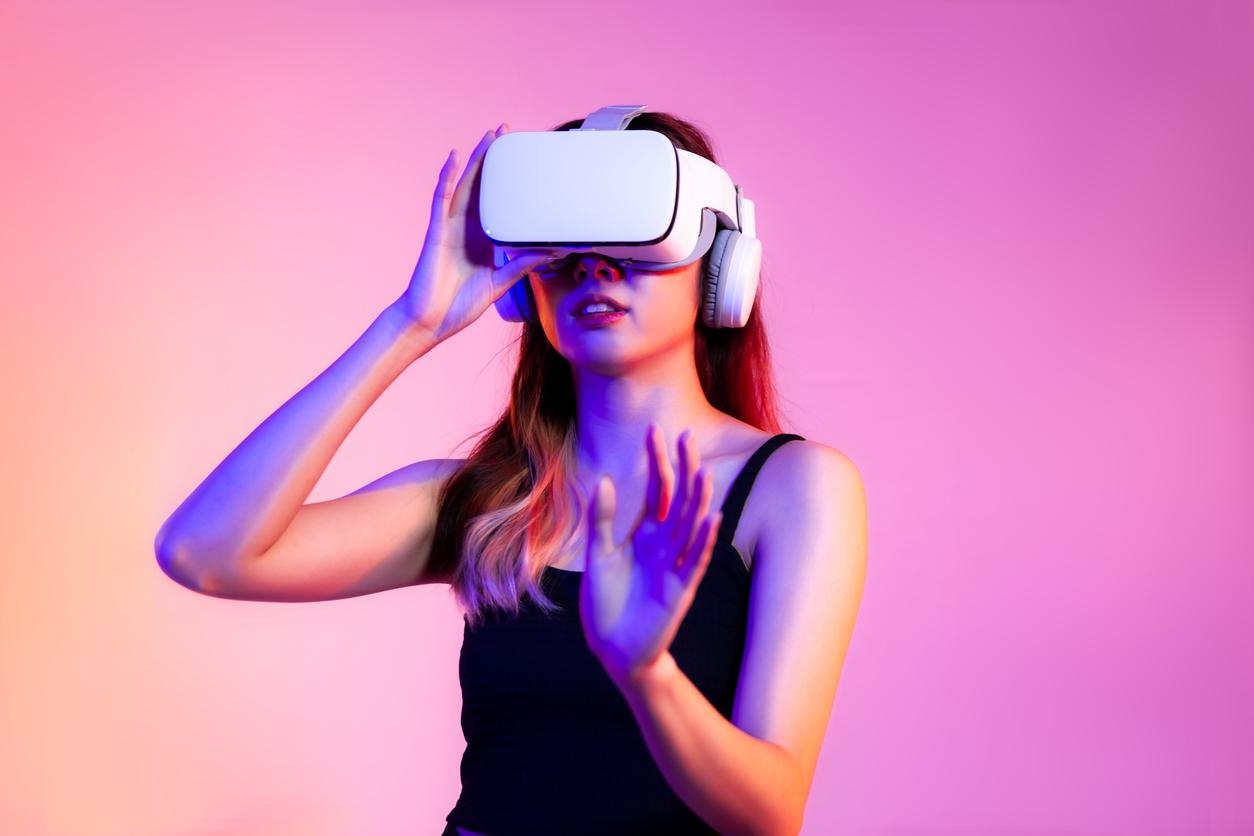Having difficulty orienting in space could predict the risk of Alzheimer’s disease several years before symptoms appear, according to a new study from University College London.

- UCL researchers used virtual reality to test the spatial navigation skills of 100 adults aged between 43 and 66.
- They found that people at risk for Alzheimer’s disease show impaired spatial navigation several years before they experience problems with other cognitive functions.
- Scientists are now working on a tool using virtual reality to diagnose dementia risks before symptoms appear.
Although there is no treatment for Alzheimer’s disease, rapid treatment can slow cognitive decline. Researchers from University College London (UCL) have just highlighted a sign that can predict neurological pathology years before symptoms appear.
Their work was published in the magazine Alzheimer’s & Dementia: The Journal of the Alzheimer’s AssociationFebruary 29, 2024.
Cognitive decline: are spatial navigation abilities first affected?
For this study, the team brought together 100 asymptomatic adults aged 43 to 66, about 25 years younger than the estimated age of onset of dementia. They had a hereditary or physiological risk of developing Alzheimer’s disease. Some were, for example, carriers of the APOE-ε4 allele, others had a family history or even a low level of physical activity.
The scientists gave them a test where they had to move around in a virtual environment using VR headsets. The data showed that people with a greater risk of developing Alzheimer’s disease performed worse on this exercise while their other cognitive tests did not show a decline in abilities. Furthermore, there was a strong gender difference in participants’ performance: the effect was observed in men, but not in women.
For researchers, the decline in spatial navigation abilities could be a warning sign of the disease. Dr Coco Newton from UCL, first author of the study, explains in a communicated : “Our results indicated that this type of change in navigation behavior could represent the very first diagnostic signal in the Alzheimer’s disease continuum: when people move from being unaffected to manifesting the pathology.”

Alzheimer’s: a diagnostic tool using virtual reality under study
This discovery should make it possible to develop early diagnosis tools based on spatial navigation capabilities. “We are now using these results to develop a diagnostic clinical decision support tool for the NHS in the coming years. This represents a completely new way of approaching diagnosis and will hopefully help people get a faster and more accurate diagnosis.”explains the expert before adding: “this is particularly important with the emergence of anti-amyloid treatments against Alzheimer’s disease, considered to be the most effective in the early stages of the disease”.
Dr Richard Oakley – associate director of research and innovation at the Alzheimer’s Society, the organization which partly funded the work – explains: “This innovative technology is far from being a diagnostic test, but it provides more evidence on the role of navigation skills as an early sign of Alzheimer’s disease. Further work is needed to develop this tool, but it will be “Exciting to see how this research could offer a way to detect disease-specific changes early and help people with dementia in the future.”

















